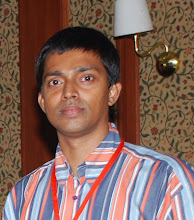Medi-tourism booster shot for hospitality biz
The Economic Times dt.19/6/06
MILKING A COW: Indian Hospitality Sector Is Waking Up To The Revenue Potential Of Medical Tourism
By Nidhi Gupta BANGALORE
ROBIN Cook might dismiss Indian medical tourism as ‘that Indian nonsense’ in his latest novel, but the Rs 1,450-crore sector that is growing by 30% every year, according to a recent study by CII and McKinsey, is now another reason for India being an outsourcing hub.
However, the Indian hospitality sector and the tourism ministry are only now waking up to the potential of the sector, says B Arun Kumar, CEO of the healthcare brokering company Mediescapes. “Out of the 20-odd big hospitals involved, only 3 or 4 have tie-ups with the hospitality sector for accommodation of their international patients,” he points out. The revenue from medical tourism do not constitute a very major percentage of revenue for hotels as of now, but are inclined to grow, says PR Ramesh, CEO of Aarex India, another health care broker.
India is increasingly becoming a hot destination because of its efficient and economical health care sector, which affords up to 60% savings for the patient, says Kumar. “But what really puts the ball in India’s court is that the waiting period is lesser and it provides better options than referrals back home,” he says. In fact more countries are waking up to India’s potential now. “Today, people from the likes of Australia, Germany, New Zealand, French-speaking African countries are choosing India over home-bound options and the so-called developed countries,” says Mr Ramesh.
With a package consisting of the chosen medical surgery, airfare, accommodation and some travel, coming up to $14,000, at the higher end, it is no surprise that India is being preferred over even Thailand and other South Asian countries, he says.
A point in case of the tie up between the medical and hospitality sectors, is Wockhardt’s agreement with Brigade Hospitality in Bangalore. “The majority of our patients come in from USA and Canada, for serious medical care like cardiac or orthopedic surgeries,” says Pradeep Thakaral, head of international business for Wockhardt Hospitals. “There is a minimum recuperation period for which the patient needs to stay in the country after the surgery and it is not possible to accommodate them in the hospitals,” he adds. A patient having undergone knee surgery, for example, is accommodated for a week in Brigade’s Woodrose Club, which is ideal, they say, because of its ambience, cost and proximity. “We have packages of about $1000 for a week for complete accommodation for two people at Woodrose Club,” says Vineet Verma, CEO of Brigade Hospitality. Overseas patients constitute about 7-10% of their revenues per year, with 350 room nights. “We are looking to take up more such initiatives with Columbia Asia hospital in Malleshwaram also,” he adds.
With approximately 12,000 overseas patients every year, medical tourists constitute 15% of Apollo Hospitals’ customer base and contribute 20% to their revenues.
We promote health tourists through overseas associations, medical travel companies and our website. Packages vary from procedure to procedure but are competitive,” says Anil K Maini, president corporate development (domestic & international marketing). “Many hospitals have tie-ups with first class hotels and the service apartment sectors, and provide options to their clients, depending on their budgets,” says Mr Kumar. Keeping in mind the expectations of international clients and the relatively lower cost of living compared to developed countries, it is desirable that the industry biggies work to tap a greater share of the market.
“The ministry for tourism is also aggressively promoting medical tourism in the Incredible India campaign,” Mr Kumar adds. But tourism here implies recuperative, easy holidays that involves staying at resorts and generally relaxing for a few days. “Even though India is at par with any other country as far as medical facilities are concerned, basic infrastructure needs to be developed for India to become the most coveted destination,” says Nandakumar Jairam, chairman and medical director for Columbia Asia Hospital. The sector might contribute Rs 5,000 - Rs 10,000 crore additional revenue by 2012. It will account for 3-5% of the total healthcare delivery market, the CII study says.
